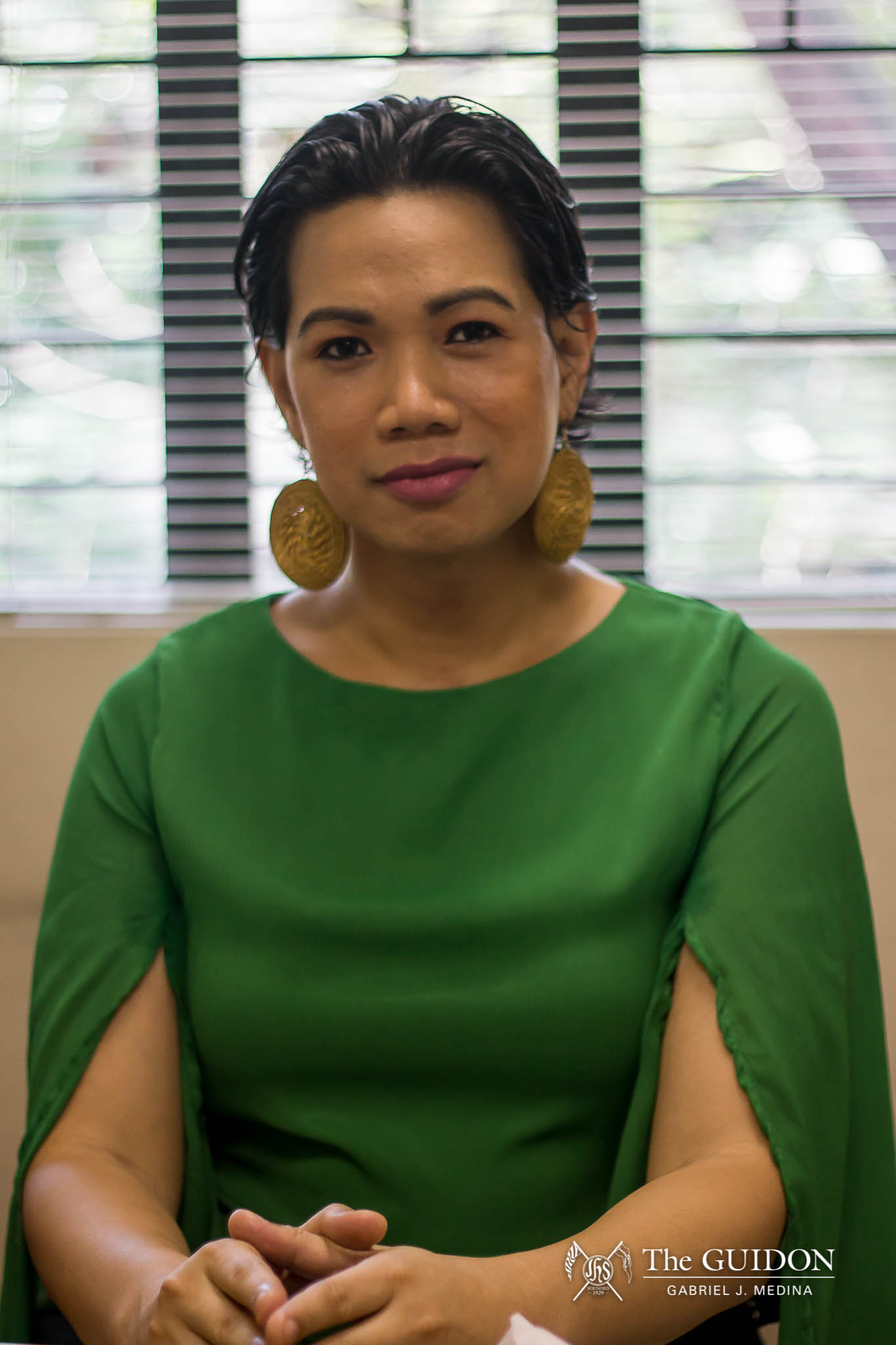
Photo by Gabriel J. Medina
As a transgender woman and professor, Jaya Pilapil Jacobo, PhD (Department of Filipino) is deeply immersed in the LGBTQ+ community. She promotes gender equality and its importance inside and outside the classroom—and in turn, opens students to a better understanding of it. She helps organize workshops on LGBTQ+ youth literature, in affiliation with the University of the Philippines and Global Grace: A research program on gender equality across cultures. With today’s need for heightened awareness, she promotes her beliefs through words and actions, hand in hand.
Trans people encounter violence every day. The moment I come out into Katipunan, I prepare myself for misgendering, cat-calling, and more. [Discrimination] begins with everyday violence and when you meet other trans people who encounter these things, that’s when you transcend the self and you think, “Oh my God, I suffer with my sisters.”
You don’t decide to become an activist, as far as I’m concerned. [...] It is your responsibility as a gender nonconformist to be able to see yourself within a community. I did not will it to happen, but because I decided to become me, to embrace my truth, I also entered that sphere of commitment that I can’t just be working for my own rights, but for others’ as well.
I am affiliated right now with the University of the Philippines, where our project is on LGBTQ+ youth and how LGBTQ+ young writers espouse gender equality, how they discuss the predicament of inequality in poetry, short fiction, autobiographies, drama, et cetera. We have two programs: One in Diliman where we just had our second workshop that gathers young LGBTQ+ writers from all over the country, and we are also affiliated with YMCA San Pablo [Young Men's Christian Association] so we cater to the community of young LGBTQ+ writers there.
In the Philippines, [for] my work outside of Global Grace, I do consultancies. A few weeks ago, a group of doctors consulted me and my sisters on how to propose a comprehensive health package for trans women that will just cover their gender affirmation needs, but also if ever they have to undergo treatment for HIV/AIDS. The perspective is always intersectional: We look at gender not just from gender, but from many other factors like social class and ethnicity.
Every day is a challenge because while I’m very sure of who I am as a person and as a woman, whenever I'm in public spaces, I’m very prone to violence. And it’s very easy to lose one’s composure when you’re misgendered or disrespected. But before I succumb to any emotion, I try to breathe in and then tell myself that even though that this is a violent moment, it should also be a teachable moment.
This is where my academic background comes in. We need as many allies as we can within the community and outside the community, straight people and cisgender people, for that matter. Not that I’m saying I want to encounter bigots every now and then and then educate them, but perhaps I may convince the other that I’m a person and what I represent is humanity and I must be respected.
Well, I’m lucky I’m on leave right now. I don’t have to worry about going to school, so I’m doing full-time activism as a researcher. But I will have to go back to Ateneo to teach in two years and it will be a challenge, but I’m going to welcome it because I feel like I'll be different as a professor in that my approach with dealing with students will be radically different. It will be informed not just by my readings, but it will be coming from a place of experience and conviction.
Not that I want to turn my students into activists, but I want to instill in them that activist orientation, that sense of indignation. It’s important to have that rage. It’s also important to know how to proceed from that rage, to know how to turn that rage into something more productive for society. I look forward to convincing my students that to be in university, it’s not just about going to class or attending meetings for your orgs, but it's also about getting involved in whatever way they can.
What I can encourage is for your activism to never compromise circumspection or deliberation—these are very Atenean values. It’s very easy to judge, to be opinionated, and social [media] gives you that license. To be able to remain intellectual in spite of the indignation is, I think, a more refined form of activism. It's not only to think with society, but to also think otherwise, to think of other alternatives.